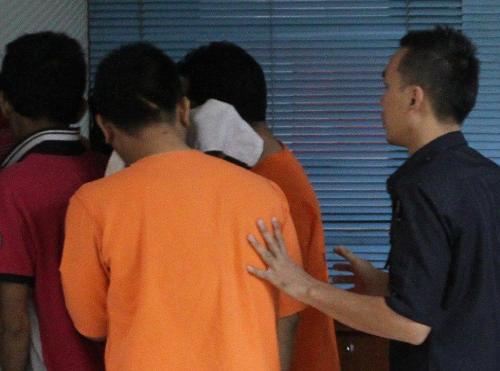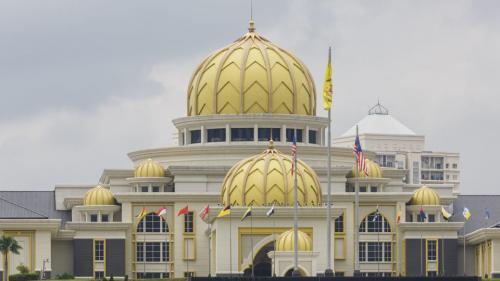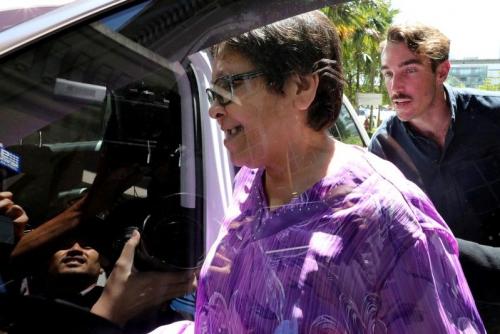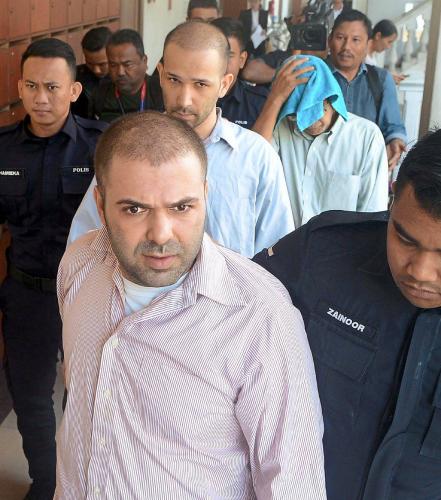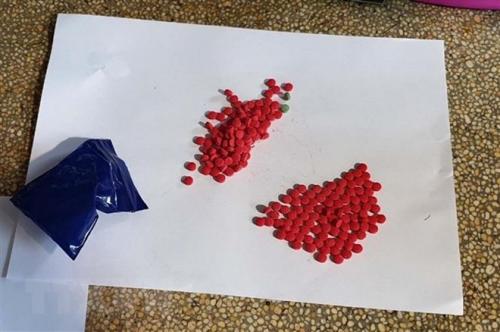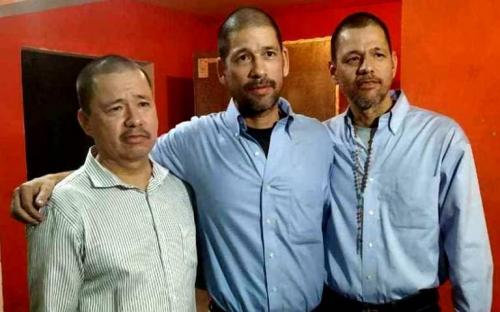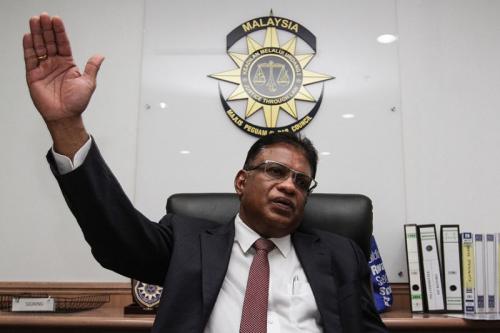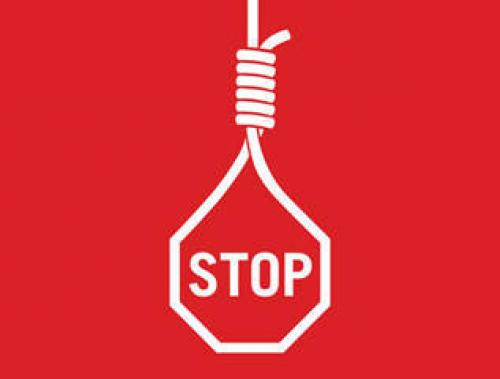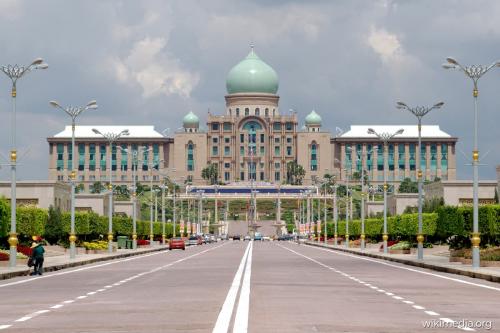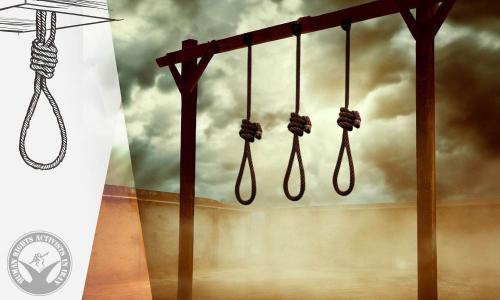international treaties on human rights and the death penalty:Convention on the Rights of the Child (made reservation to Art.37 which prohibits the application of the death penalty to minors under eighteen)
situation:The legal system in Malaysia is based on English Common Law. Islamic law is applied to Muslims in matters of family law and religion.
In Malaysia capital crimes include murder, terrorist acts, treason, kidnapping, rape, armed robbery, burglary, military offences, drug trafficking and possession of arms.
The death sentence is mandatory by hanging for murder (section 302 of the Penal Code), for trafficking narcotics in various amounts according to the drug concerned (section 39B of the Dangerous Drugs Act 1952), and for discharging a firearm with intent to cause death or hurt while committing various crimes, even where no one is hurt (section 3 of the Firearms (Increased Penalties) Act 1971).
Malaysia imposes mandatory death sentences also for other offences like terrorism, and for poisoning of the water supply causing death (Section 130C of the Penal Code); hostage-taking resulting in death (Section 374A of the Penal Code); offences against the person of the Yang di-Pertuan Agong, Ruler or Yang di-Pertua Negeri (Section 121A of the Penal Code).
It could also be imposed for: kidnapping or abducting in order to murder (section 364 of the penal code); rape resulting in death (section 376(4) of the penal code); gang-robbery with murder (section 396 of the penal code); abduction, wrongful restraint or wrongful confinement for ransom (section 3(1) of the kidnapping act 1961).
The Dangerous Drugs Act 1952, at Section 39B on possessing and distributing drugs, also carries a mandatory death sentence. Possession of 200 grams of cannabis is enough to put one away for a 20-year life sentence. Trafficking in more than 200 grams of dangerous drugs carries a death sentence.
In January 2003 the death penalty was instated as mandatory punishment for rapists who cause death and child rapists.
The Malaysian High Courts only try criminal cases punishable with the death penalty. Death sentences issued by a High Court can be appealed at the Court of Appeal. If an appeal is unsuccessful a death row inmate can have resort to the Federal Court. The last resort is the State Pardons Board. The King alone is empowered to commute death sentences.
In general about two years pass between the passing of a death sentence and the execution of the person condemned. Some appeals processes however exceeded 10 years.
Top secret death
Authorities do not make any public announcement about the imminent executions nor is there any posthumous information about the executed individuals, while families are often informed at the last minute that their loved ones will be executed.
Because the Government does not release annual data on its use of the death penalty, it is difficult to confirm the real number of executions that are carried out in the country.
The secrecy around the use of the death penalty was very slightly lifted in 2016.
In October 2016, the Interior Minister delivered, for the first time, disaggregated data for year referring to the parliament that 6 executions were in 2014, 1 in 2015 and 9 as of September 2016.
In 2016, statistics from the Prisons Department showed that between 2010 and February 2016, the courts sentenced 829 prisoners to death for various crimes, including murder, drug trafficking, firearms trafficking and kidnapping, and 95 were pardoned or given reprieves, said Ahmad Zahid, who is also the Home Minister.
As of 30 April 2016, the government had stated that 1,042 people - comprising of 629 Malaysians and 413 foreign nationals were sentenced to death due to murder, drug trafficking, firearms trafficking or kidnapping. 649 of those sentenced to death have a case pending before courts and 393 are waiting for pardon.
On 21 February 2017, when Ahmad Zahid, the Home Ministry, in a written parliamentary reply had informed that a total of 16 inmates - 14 Malaysian and two foreigners - had been executed between 2014 and Feb 21 2017 and that a total of 1,122 prisoners have been found guilty and sentenced to death by court. His reply did not state from when these convictions took place.
In 2016, Malaysia imposed at least 36 death sentences, including 17 for drug-related offences of which 7 on foreign nationals according to Amnesty International.
In 2017, Malaysia executed 4 people. According to Amnesty International, 38 new death sentences were imposed during the year: 21 for drug trafficking; 16 for murder; and one for discharge of a firearm. Four of those sentenced to death were women; 12 were foreign nationals, including 10 convicted of drug trafficking.
In 2017, three men sentenced to death for drug related crimes had a commutation, two in life imprisonment in the State of Perak and one pardoned in Selangor
Death penalty for blasphemy and apostasy
The legal system in Malaysia is based on English Common Law. Islamic law is applied to Muslims in matters of family law and religion. Despite contradicting federal law, the State governments of Kelantan and Terengganu passed laws in 1993 and 2002, respectively, making apostasy a capital offense. As well, the death penalty by stoning is sanctioned regionally but banned nationally.
On 19 March 2015, the Kelantan State Assembly unanimously passed a hudud (crimes against God) bill that would remove the caps currently set in place for Sharia punishments and would extend them to permit amputation for theft, stoning for adultery, flogging for alcohol consumption, crucifixion for armed robbery, and execution for apostasy. Although not applying to non-Muslims this law would deny any Muslim the opportunity to change to another religion. Anyone who chooses to renounce Islam and convert to another religion would be imprisoned for a period of time in order to repent. If the convert refused to repent, they would then be sentenced to death. In the state of Kelantan, Sharia courts run alongside the penal court system and are governed by state legislation rather than federal law.
Kelantan’s hudud bill was initially passed in 1993 but was prevented from being implemented after the federal government ruled that it was unconstitutional.
Death penalty on women
Under Criminal Procedure Code of Malaysia, art. 275 the maximum sentence for a woman pregnant at the time of sentencing is 20 years’ imprisonment. Women’s testimony may not hold as much weight as men’s in Shariah courts.
In 2017, 4 women were sentenced to death.
The "War on Drugs"
The Dangerous Drugs Amendment Act 2017, abolishing mandatory death penalty and returning sentencing discretion to judges vide, was passed by Parliament and received royal assent on 27/12/2017. Section 3(2) of Dangerous Drugs (Amendment) Act 2017 states, ‘(2) Any proceedings against any person who has been charged, whether or not trial has commenced or has been completed, and has not been convicted under section 39b of the principal Act by a competent Court before the appointed date, shall on the appointed date be dealt with by the competent Court and be continued under the provisions of the principal Act as amended by this Act.’
According to Malaysian Against Death Penalty and Torture (MADPT) the Dangerous Drugs (Amendment) Bill 2017 was passed by the Dewan Rakyat(House of Representatives) on 30/11/2017, and by the Senate(Dewan Negara) on 14/12/2017. Royal assent was received on 27/12/2017, making this now an Act of Parliament, but sadly, it only will come into operation on a date to be appointed by the Minister by notification in the Gazette. This DDAA 2017, when comes into force, will only be applicable for cases where the accused person is not yet convicted. The new law, when it finally comes into force, does not provide the Courts, including the Appellate courts, the power to vary the death sentence of those already convicted by the High Court to imprisonment, unless the conviction itself is set aside on appeal.
In an ordinary criminal appeal, the convicted has the right to appeal against the conviction, and also appeal against the sentence. However, when the law provides for a mandatory sentence, in this case the death penalty, when the accused person fails in his/her appeal against conviction, then the courts cannot even review the appropriateness of the sentence as the law only provides for only one sentence is available – the death penalty for drug trafficking. There are still many flaws in the new Dangerous Drugs Amendment Act 2017, including the limitations imposed as to the matters that the judge can or should consider when deciding on an appropriate sentence, which goes against normal practice in other criminal trials where there are almost no restrictions as to the matters that can be considered by the judge in the exercise of his sentencing discretion.
There have also been criticisms about the limited options that will be available, as it would certainly be more just for judges to be able to sentence persons to a lower prison sentence in appropriate cases and not just to life imprisonment only.
The new law, sadly, do not provide any remedy to those already convicted and/or for the 800 or more currently on death row by reason of having been convicted for drug trafficking, according to Charles Hector a Malaysian Human Rights advocate and activist in a statement dated 12 February 2018.
The "War on Terror"
On March 6, 2007, a new amendment to the Malaysian penal code went into effect calling for the death penalty as a mandatory sentence for terrorist acts that cause death. Providing terrorists with ordinance, training, equipment or money, as well as offering terrorists refuge or hiding information concerning terrorists, all fall under the definition of a terrorist act. In investigating these crimes, police can process and arrest suspects without due process and there is no possibility of release on bail. In the event that the terrorist act does not cause death, the new law provides for prison terms ranging from 7 to 30 years.
United Nations
On 12 March 2014, in its written response to the recommendations received under the Universal Periodic Review of the UN Human Rights Council, the Government said that Malaysia was not in the position to commit to put in place an alternative to the death penalty and to establish a moratorium on its application. In clarifying, it said the Attorney-General’s Chambers was undertaking a comprehensive study to examine the legal and policy frameworks related to the application of the death penalty in the country.
On 19 December 2016, Malaysia voted against the Resolution on a Moratorium on the Use of the Death Penalty at the UN General Assembly.
On 17 December 2018, it voted in favour.






